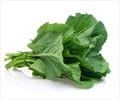Highlights:
- Dystonia is a rare disorder
characterized by involuntary painful muscle contractions affecting various
parts of the body.
- Dystonia awareness week 2017
celebrated from 29th April to 7th May aims to raise
awareness and raise funds for dystonia research.
- The theme ‘go green for dystonia’
urges persons to wear green or even streak the hair green to show
solidarity and to get involved in fundraisers and other events to spread
the word about this condition.
Dystonia Awareness Week
Dystonia awareness 2017 is being
celebrated from 29
th April to 7
th May. During this week,
many fundraisers such as marathons, walkathons, parties and
sales are organized to spread the message and correct misconceptions about this
painful and debilitating condition.
‘Dystonia is not a psychiatric disorder. It is time we did our bit to raise awareness about this painful neurological condition.’
is the theme for dystonia awareness
week. Participants and volunteers dressed in green get involved in events that
would help to raise awareness. Distributing flyers, putting up posters or a stall in public places such as malls, marketplaces and parks. Holding sales and collecting donations and contributions from the public are some means of raising funds to promote research and scientific studies about dystonia, a condition about which little is known.
Dystonia - Facts and Figures
- Dystonia refers to a group of
disorders characterized by involuntary
muscle spasms that make the person assume abnormal postures or
abnormal movements.
- It can affect adults as well as
children.
- It is the third most common movement
disorder after essential tremor and Parkinson’s disease.
- Currently, it is estimated that
there are at least 70,000 dystonia sufferers in the UK alone and over
300,000 estimated to be living with dystonia in the US.
- It is a painful and debilitating
condition, not to mention the embarrassment and social stigma faced by
dystonia sufferers.
- Very often, it is mistaken for a
psychiatric condition, where correct diagnosis and
initiation of treatment may take years.
- The cause of dystonia is not known
and many theories have been put forward such as genetic mutation, brain
injury, drugs and toxins and metabolic disorders.
- Dystonia is not a life threatening
disease nor does it affect the lifespan.
- There is no cure for dystonia.
However
it can be effectively managed with medications such as botulinum toxin,
surgery and other forms of treatment.
Living and Coping With Dystonia
Dystonia is a
difficult condition to live with and treatment is challenging. It requires the
concerted efforts of health professionals, family and friends to make the life
of affected people better.
- Medications such as botulinum toxin repeated every 3-4
months may offer some relief. Drugs that target the neurotransmitters such
as carbidopa-levodopa have also been tried.
- Physical therapy for relief of
muscle spasm
- Speech therapy if voice is affected
- Massage therapy and stretches to
improve muscle pain
- Pain management to treat the chronic
pain associated with dystonia
- Deep brain stimulation to control
muscle contractions
- Selective denervation for dystonias
that are difficult to treat
- Stress relief measures such as
meditation and deep breathing
- Yoga which combines the benefits of
breathing, meditation, postures and stretches
- Biofeedback techniques
- Psychological counseling
for anxiety and related disorders associated with this condition
Dystonia Support Groups and Organizations
It is important to learn as much as we
can about this condition in order to bring hope and cheer into the lives of
dystonia patients. Many organizations and support groups are doing their bit to
educate the population and improve the life of people with dystonia. Some of these organizations and their web address
is provided below:
- Dystonia
Medical Research Foundation - https://www.dystonia-foundation.org
- The
Dystonia Society - www.dystonia.org.uk
- Australian
Dystonia Support Groups - https://www.dystonia.org.au/
References:- The Dystonia Society - (http://www.dystonia.org.uk/)
Source-Medindia









